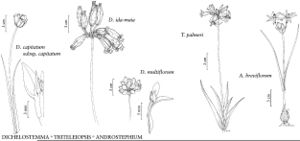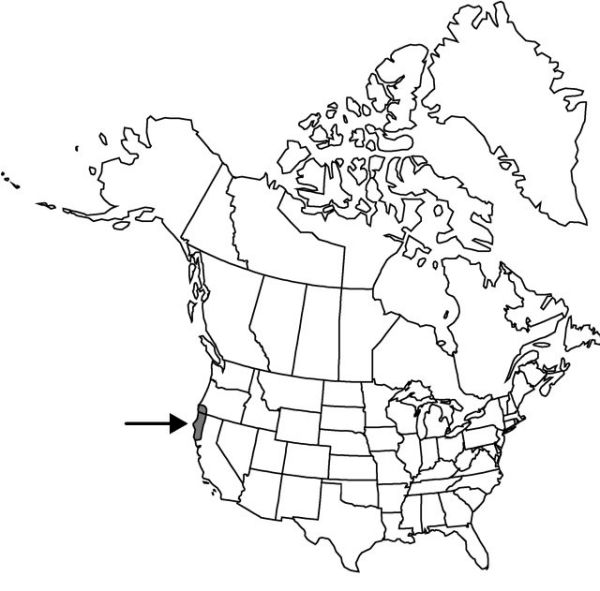Difference between revisions of "Dichelostemma ida-maia"
Man. Bot. San Francisco, 318. 1894.
imported>Volume Importer |
imported>Volume Importer |
||
| Line 85: | Line 85: | ||
|publication year=1894 | |publication year=1894 | ||
|special status=Illustrated;Endemic | |special status=Illustrated;Endemic | ||
| − | |source xml=https:// | + | |source xml=https://bitbucket.org/aafc-mbb/fna-data-curation/src/2e0870ddd59836b60bcf96646a41e87ea5a5943a/coarse_grained_fna_xml/V26/V26_669.xml |
|genus=Dichelostemma | |genus=Dichelostemma | ||
|species=Dichelostemma ida-maia | |species=Dichelostemma ida-maia | ||
Latest revision as of 21:16, 5 November 2020
Leaves 3–5, 30–50 cm; blade keeled, glaucous. Scape 30–90 cm, smooth. Inflorescences umbellate, open, 6–20-flowered; bracts reddish, lanceolate, 15–25 mm, apex obtuse. Flowers nodding at anthesis, erect in fruit; perianth tube red, cylindrical, not constricted above ovary, 20–27 mm, with 6 sac-like angles on proximal 1/3, lobes recurved, erect in fruit, yellow-green, 7–9 mm; perianth appendages each coalescent with an inner and outer tepal, forming conspicuous corona, erect, whitish, 3–4 mm, margins entire, involute, apex rounded; stamens 3, equal; anthers 6–8 mm; ovary stipitate, narrowly ovoid, 7–12 mm, stipe 3–6 mm; style 7–20 mm; pedicel 10–50 mm. 2n = 28, 48.
Phenology: Flowering spring (May–early Jul).
Habitat: Forest edges, grasslands near coast
Elevation: 0–2000 m
Discussion
Dichelostemma ida-maia is so distinctive that it has typified a segregate genus, Brevoortia. This species stands apart from all other members of Dichelostemma by its long, bright red perianth tube and green perianth lobes, nodding flowers, long anthers, stipitate ovary, and large seeds.
Dichelostemma venustum, the rose firecracker flower, may be a hybrid between D. ida-maia and D. congestum or D. multiflorum. It is intermediate in perianth tube length and color (pink), and gynophore length (L. W. Lenz 1971; G. Keator 1991, 1993b). It is restricted to relatively mesic habitats of northwestern California and southwestern Oregon.
Selected References
None.

